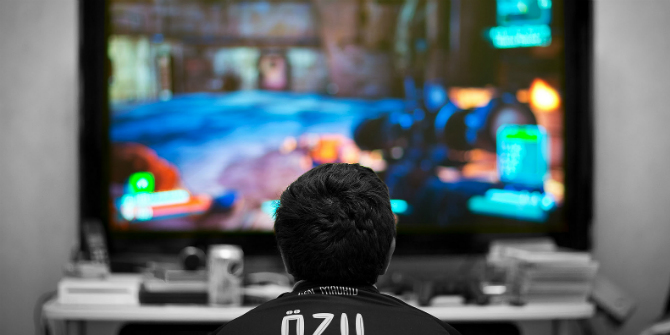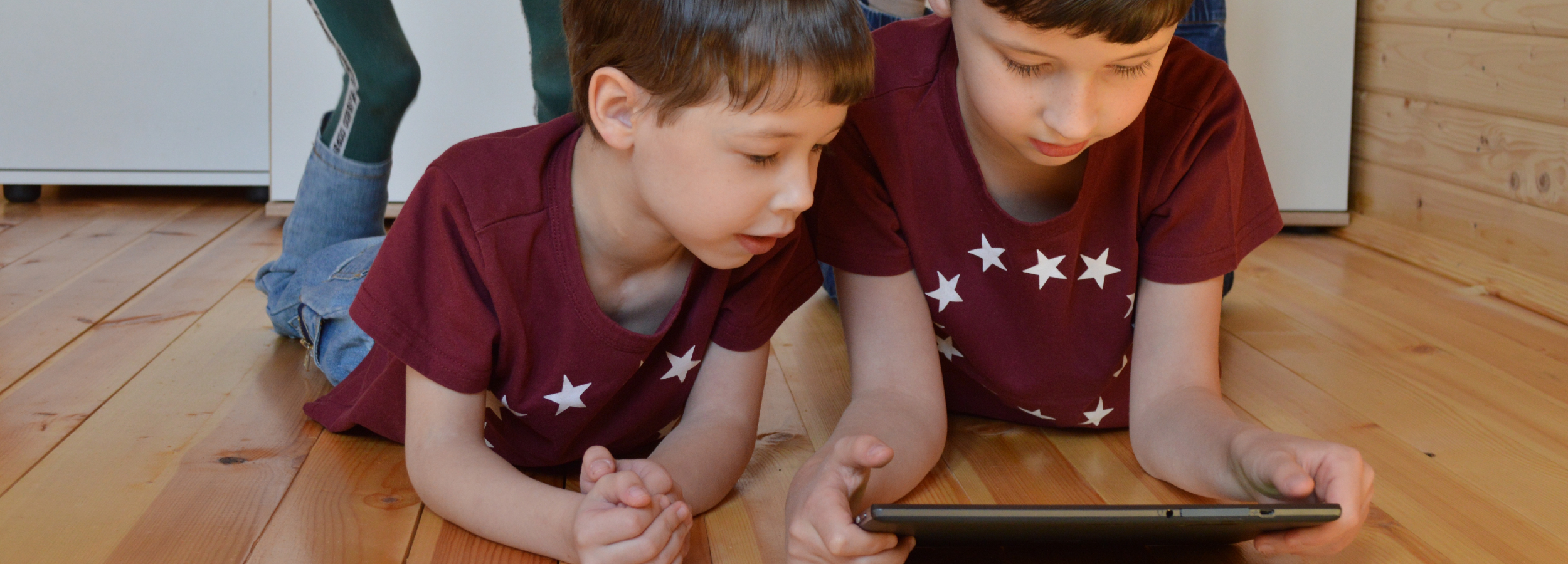 As much of Western Europe, the US and Asia remain in various degrees of ‘lockdown’ to slow the spread of the coronavirus that causes COVID-19, LSE Professor Sonia Livingstone discusses how families can manage the explosion of misinformation online and help children deal with the challenges of social isolation. Sonia spoke on the same issue on Radio 4’s Woman’s Hour recently.
As much of Western Europe, the US and Asia remain in various degrees of ‘lockdown’ to slow the spread of the coronavirus that causes COVID-19, LSE Professor Sonia Livingstone discusses how families can manage the explosion of misinformation online and help children deal with the challenges of social isolation. Sonia spoke on the same issue on Radio 4’s Woman’s Hour recently.
In these peculiar weeks, with schools closed and parents at home juggling multiple work and family responsibilities, tensions are probably running high. Uncertainty and risk are difficult to live with at the best of times, and these are not the best of times. Tension, uncertainty, risk, and social isolation: these are perfect breeding grounds for misinformation.
The evidence points to an explosion in misinformation (false information, though usually not created with the intention of causing harm) and some disinformation (false information deliberately created to cause harm). This is spread virally via social media, WhatsApp messages, texts, scams or spam, often accompanied by a recommendation to “look at this” from trusted friends and family. The result is a heady mix of hoaxes and misguided – and sometimes dangerous – ‘advice’ to help us prevent or cure coronavirus is compounding our current problems.
More than a year ago the big tech platforms committed to fighting online disinformation, and are now working in partnership with the NHS. But their business model works against such efforts, relying on algorithms that manipulate our news feed by amplifying content that’s attention-grabbing, sensationalist, even transgressive. The result is ‘information pollution at a global scale’ and, because it comes at a time when trust in experts was already low, it’s hard to know what to believe.
Most public information about coronavirus has focused on adults, and society has been slow to notice that children, too, are struggling with the upheaval in their lives. Many are anxious, missing friends, school and familiar routines – at a time when they were already worried about the future. Like most problems, the effects are felt unequally.
So what should families do?
Research on child news audiences has long shown that children are observant of and interested in the troubles of the world. Certainly, even if don’t mention it, they notice when their parents are worried. My first suggestion for families is: talk together about what’s happening. It’s especially vital to recognise children’s concerns – even young children want to understand, and to contribute where they can. To help this conversation along, maybe read or watch some child-friendly news together.
On the plus side, children love to show their prowess in using the internet – for example, by hunting down useful health information online or cheering people up with the latest memes. So my second suggestion is: ask your child(ren) to locate the information the family needs, whether it’s how the illness is spreading or the latest rules on going outside or how to care for a sick relative. One of the nice things about the digital world is that it offers an unprecedented opportunity for parents to learn from their children. Take it. The result can be more empowered children, and a more trusting relation between parent and child.
Crucially, although children often claim a great affinity with all things digital, like everyone else they find it hard to distinguish trustworthy information from misinformation. So, this is a good time for some informal media education! This can include:
- Figuring out trustworthy information sites – my starter for ten would be NHS, WHO, PHE. For younger children, Newsround is a good source. Parents could discuss with their children what other sources they themselves trust, and why.
- Developing critical judgement. Take a look at the fact-checking sites (e.g. Full Fact). Play BBC iReporter game and check out the new Bitesize Fact or Fake? Teach children to evaluate online sources – does the URL make sense? Do different sources agree on the gist of the story? Remember, if it seems too amazing to be true, it probably isn’t. So try to pause before sharing.
Media literacy efforts really can work in schools, communities, online. At home too, the conditions are promising. In our Parenting for a Digital Future project, we learned that:
- Many families are already using digital technologies at home for learning, for pleasurable shared time at home, for connecting with family outside the home – and they really value this.
- In mediating their children’s digital activities, many parents are making the switch from authoritarian (bans, restrictions, policing) to enabling (discussion, explanation, supporting) strategies.
- Parents want support in these efforts – it’s time for less criticism from onlookers, more guidance from government, fewer risky services from industry.
To take up my suggestions, parents may have to let go of their screen time worries. Conveniently, experts have been arguing for a while that society’s preoccupation with screen time is outdated. With children at home in need of both entertainment and education, this is a good time to rethink. I’d argue that what matters is not how long children use digital devices, but what they use them for and why and how this fits into the rest of their lives. So, parents could take this moment to review which contents, activities and connections enabled by digital media are beneficial, and discuss this with their children – as children’s perspectives are often different from ours, and they too deserve to be heard.
Families differ hugely, depending on their education and income, their values and traditions, interests and needs of their children, and their own digital expertise. Some include children with special educational needs and disabilities, often with particularly intense hopes and fears regarding the digital world. Some face forms of social disadvantage that limit their flexibility and resources to cope with the pandemic, as well as limited digital connectivity.
So my suggestions won’t work for everyone, and families’ different priorities should be respected. But it’s heartening that, notwithstanding the misinformation, recent weeks have also seen a surge in attention to trusted news sources. And an abundance of suggestions for positive activities – digital and non-digital – for while we’re all stuck at home.
This post gives the views of the authors and does not represent the position of the LSE Parenting for a Digital Future blog, nor of the London School of Economics and Political Science
Note
This text was originally published on the Media@LSE blog and has been re-posted with permission.
Featured image: photo by Anastasia Gep on Pixabay





